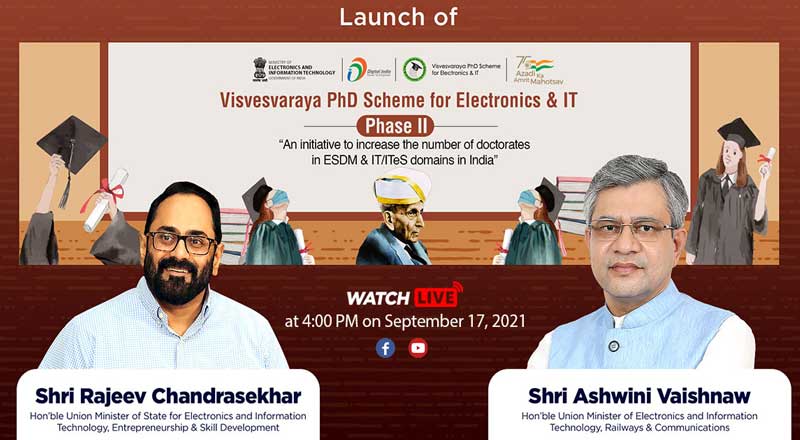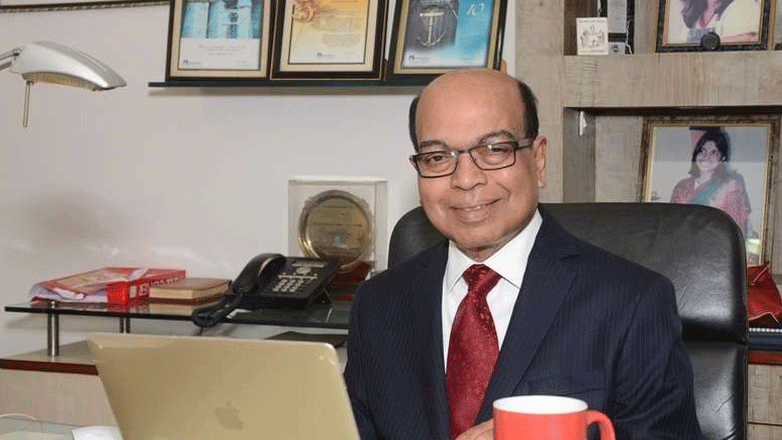 De-monetisation of the Rs 500 and Rs 1000 notes is a massive blow for those who have black money. Simultaneously, it will effect the common man; but this move is a very powerful measure to curb black money. It is a the biggest reform which no one expected and will have a huge impact on people who are hoarding money and not disclosing it for tax purposes – indeed a big push for a digital, cashless economy.
De-monetisation of the Rs 500 and Rs 1000 notes is a massive blow for those who have black money. Simultaneously, it will effect the common man; but this move is a very powerful measure to curb black money. It is a the biggest reform which no one expected and will have a huge impact on people who are hoarding money and not disclosing it for tax purposes – indeed a big push for a digital, cashless economy.
8th November 2016 will go down in history as a day that Indians will keep it in mind for a lifetime. It is on this day that a major step taken by the present government and RBI is believed to improve the lifeline of the crumbling economy for better. The discontinuing of Rs 500 & 1000 notes will not only help in the long run for the country to prosper but also have greater implications like faster GDP growth, bringing down inflation and products becoming more affordable which will fuel the demand and further growth of the industries.
Applauding the move Kunal Bahl, Co-founder & CEO – Snapdeal says, “We welcome the Government’s bold and courageous move to weed out black money, which will have signiÞcant long term benefits for the economy. With this, the quantum of India’s economy moving through the digital pipes will witness massive growth. Both Snapdeal and FreeCharge are committed to supporting all such initiatives.”
“This is an extremely bold and first of its kind crack down initiative against corruption, black money and counterfeit currency. It is indeed commendable the way that this initiative has been executed with such perfection (including timing of the announcement, keeping such a wide initiative under wraps until announcement etc.). There is no doubt that in the mid to long run, this will indeed have a big impact to remove the termite of corruption,” says Srividya Kannan, Founder, Director – Avaali Solutions Pvt Ltd.
“A full-blown war, not just a surgical strike, has been declared by the Indian Government against black money. Out of the current Indian population estimated at 123 crore, only a minimal fraction of 2.87 crore individuals fled their income tax return and even lower, one percent or 1.25 crore, paid taxes in FY 2014-15. This is certainly an alarming figure to quote, especially considering that we are a progressive nation. With the PM’s announcement, the honest tax payers will get their fair play. The nation’s biggest crackdown will certainly check black money and cross-border monetary transactions of counterfeit currency. This will curb corruption to a large extent and also ease the life of common citizens,” suggests Rajeev Jain, Chief Financial Officer, Intex Technologies (India) Ltd.
Impact on the IT Industry –
The increasingly growing dependence on ICT right after this scheme gets into action seems to be getting clearer. Says Anwar Shirpurwala, Executive Director – MAIT, “The move taken by the govt. clearly indicates that we will be depending more and more on the ICT. This move has been possible because of the availability of technology and multiple means of financial transaction. This also calls for the Govt to further look for means of increasing IT penetration, thus enabling every citizen to use technology tools and services for cashless transactions. Govt. should continue to give more emphasis on technology led schemes and programs for the betterment of the economy growth.”
Opines Satish Kumar V, Country Head – DMX India, “This is a welcome opportunity for the IT industry as the dependency on the banking & online transactions and communications is set to grow exponentially. This development would help hardware/software/services players to perform smart business, maintaining a transparent track record. It is also a boost to the start-up segment that can now take the cashless transactions and related shopping /purchase related experience to new levels of comfort with their innovative platform & service idea.”
Rohit Agarwal, CEO – Astrum Electronics India Pvt Ltd comments, “For the IT industry, there is not going to be a major impact as our industry works mostly (around 90%) in bill and there is only less component of it which is in real cash, if we talk about branded materials. But those who are not selling brand and are importing material from China, it will be big challenge for them as there 90% business in cash. The main issue will be at the consumer level as most of the people are buying in cash and people are not habituated to use debit and credit card so sales will suffer in short term. This move will help brands to grow and help in curbing the fake, grey market, and Chinese import cash sales.”
Agrees Biswas Nair, Founder & Managing Director – Inspirria Cloudtech, “This decision will hardly be impacting businesses in the IT industry as most of the transactions are done digitally. But, certainly the largest employee base in the IT industry may feel the inconvenience in near future because of the pull out of the 500 and 1000 currency notes. We need to understand that these young employees are one of the most avid spenders too, albeit some of them have moved to debit and wallet money.”
S Sriram, CEO – iValue infosolutions too echoes a similar sentiment, “There won’t be much of an impact on the IT industry as they prefer purchase and sales through banking system only. Once cleaned up, further generation of black money will be dramatically cut down and more transactions will happen electronically instead of cash and hence the counterfeit will reduce.”
According to Sudip De, Director – DOEL International Pvt Ltd, IT and mobility are pretty settled business through national distribution. “All cash businesses would be hit for sure. Legal distribution through NDs & RDs would thrive to topple the grey market; trade would be hit in the short term but in the long term people would learn to do their business through cheques or net banking. I just hope the daily wage earners are not hit. Most of them have not been able to decipher the entire process clearly and they should be educated. I prefer sudden jerks and so am happy the way it has been done.”
With GST likely to be rolled out from 1st April 2017, this demonetisation of old currency notes will complement the government’s move to ensure higher ‘tax compliance’. “Strict tax compliance will help SMEs running legitimate businesses, who generally find it difficult to compete with smugglers and those dealing in contraband goods. While there may be hardship for a week or two, thereafter things are expected to settle down, and people in general, including businesses, would be able to get cash when needed through authorised banking channels,” observes Viren Bavishi, Director – TAIT.
How will Demonetization impact the Economy
- As on today total banking transaction is more than 2.7 lakh crores per day, say more than 800 lakh crores annually. Less than 20% transaction is made through banking system as on today and more than 80% transaction made in cash only, which is not traceable. The move will put this to an end
- Black money will be either converted to white or will vanish as billions of 1000/500/100 currency notes hidden in bags and without its use will become simple pieces of papers
- Unaccounted hidden huge cash was skyrocketing the prices of properties, land, houses, jewellery etc and hard earned money is losing its value; this trend will stop immediately
- Terrorism supported by cash transaction will stop
- Cannot buy high value property in cash showing very less registry prices
- Circulation of “Fake Currency” will stop because fake currency printing for less value notes will not be viable
Demonetization leads to surge in digital payment
India is now a bright spot in the global economy and is the preferred destination of investment. The demonetisation exercise will give a big boost to the banking sector which will give fillip to “Make in India”, “Start up India” and “Stand up India” movement thus helping India to leapfrog.
The industry has come in full support of demonetization of Rs 500 and Rs 1,000. We are also witnessing a huge surge in digital payment across all companies and all verticals. Some E-commerce companies have stopped COD (Cash on Delivery) or are reviewing COD and moving towards digital transaction as the country is undergoing a major transformation for the next 50 days.
Commenting on demonetization, Sanjay Sethi, co-founder & CEO, Shopclues said, “This is a master stroke by the BJP government and a very bold move indeed. Even though this is not the Þrst time such a move has been made by a sitting government, what is significant this time is that it is built on the JAM trinity – Jandhan, Aadhar and Mobile – making it hard for the country to regress.”
Arvind Gupta, BJP IT head, in his capacity as founder of Digital India Foundation moderated a discussion which saw some of the biggest ecommerce and e-wallet players in the country gather to share their opinions on demonetisation, what it means for ecommerce players, how investors feel about it and how it will shape the future of transactions across the country.
Benefits to the Economy –
Demand for Digital Money on rise:
The demand for digital money will eventually lead to more use of plastic and e-wallet money, providing a great boost to the e-wallet companies like PayTM and Citrus as they will drive more adoption. The surge in the Digital payments instruments will further give a big boost to the Digital India initiative.
A Cashless Economy:
- Aligning with the idea of preventing money laundering, customers would be encouraged to go for cashless transactions. It will not only be easier for the customer for keeping a track of transactions when money is exchanged online but will also help the government in ending crime and tax evasion.
- For retailers too, it will be no different. All their hesitation for card/wallet acceptance will now disappear as they will be forced to declare all their income by depositing cash in bank. Cash on delivery for eCommerce will now become a thing of the past.
End of Black Marketing/ Grey Market commodities:
The biggest advantage of such a scheme is that people who have stashed away their black money will be in serious trouble as the amnesty period is over with the IDS scheme on Sept 30. If they declare the wealth now they pay 60% tax compared to 45% through IDS 2016.
Increase Cash flow into the Banking system:
The Banking that is currently facing a lot of deficit issues will be benefitted. This step will help in increasing cash flow for the banking system that can further lead to help businesses and industries. Industries will eventually get benefitted as this will lead to a reduction in interest rates and hence more cash will flow into the market as part of the loan. This will create a positive impact on corporate that can get more liquidity for newer projects and investments.
End to funding of Terrorist organizations:
- The move will also bring to an end to the financing of terrorist organizations and agencies and put a curb on terrorist activities in the country.
Improve the lives of daily wage workers/cultivators
- The lives of farmers, artisans and similar other sections can get alleviated. By actively participating in micro and rural Þnancing through ofÞcial means, they can actually come out of the clutches of money lenders & middle men.
Pranay Jivrajka, VP of operations, Olacabs, added, “I believe that the stickiness of the cashless economy will remain after this demonetisation move and will help digitize the entire income pyramid of India.”
Sanjay Swamy, managing partner at Prime Venture Partners and volunteer iSpirt, said, “Many things have led to this inßection point where India is actually becoming a cashless, digital economy. We have a one of a kind infrastructure platform called the India Stack which includes Aadhar and KYC digitalisation culminating in the UniÞed Payment Interface (UPI). This is a global first, nowhere in the world has such steps being taken to ensure that ‘unfakeable’ information is linked to financial transactions carried out and for making transactions in real time.”
On how investors view demonetisation, Swamy said, “There are investors who have stayed away from investing in India who are now beginning to consider investing in India. I have invested in three to four payment companies, they have good growth with customers who were just waiting on the side lines now becoming active. So there’s less risk in scaling, investing in digital payment infrastructure.”
Prashant Tandon, founder, 1mg, said, “Demonetisation move was great for the digital health industry. There are many parallels to be drawn between fake notes and fake pharmaceutical products. We would love to see both removed. In a digital economy where buyers and sellers of pharmaceutical products are traceable the simple act of creating a receipt of payment will transform the pharma industry in many ways that we cannot even understand at the moment.”
He further said that there is however a lot more for banks to do. “There are 66 crore debit cards in India [and about 2.4 crore credit cards in circulation according to reports] but there are only 1.5 million point of sale (POS) terminals in the country. This is because the POS acquirers aren’t making enough money from it.” He said this signalling a need to strengthen and add to the network of physical infrastructure that will increase the use of cards and further drive the cashless economy.





